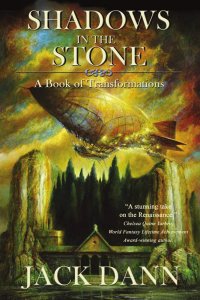Paula Guran Reviews Short Fiction: LCRW, Uncanny, and Apex
 Lady Churchill’s Rosebud Wristlet 9/20
Lady Churchill’s Rosebud Wristlet 9/20
Uncanny 11-12/20
Apex 1/21
I write this as annus horribilis 2020 ends. Although I have no intention of continuing the new year in this manner, I simply have too many stories and not enough inches in which to cover them. Apologies to writers whom I may be slighting, but his time out I’ll be concentrating on the more outstanding stories in each featured periodical. (Or at least I will try to do so.) I’ll also strive for brevity.
Sarah Langan‘s novella “You Have the Perfect Mask” in Lady Churchill’s Rosebud Wristlet #42 is a showstopper. Set among the elite of a near-future New York City, it’s both a thoughtful tale of conscience and an examination of the sociocultural world of 12-year-old/turning-13 girls. Mean Girls meets Socrates, but so much more. The latest pandemic, the Y-Plague, has gruesomely killed 20 million worldwide. Both women of childbearing age and men contract the disease, but only men die from it. The virus is now mostly controlled, but only by various levels (depending on national custom, convention, and, subsequently, law) of female containment. It is now the law – and a celebrated part of popular culture – in the US for girls age 13 and above to wear face masks, even though pubescent girls have been proven to not be carriers. Three girls resolve to resist. That description doesn’t do justice to a nuanced story that is as immersively entertaining as it is reflective. In other words: you have to read it.
Of the four remaining stories in LCRW, “Madeline’s Wings” by Stewart Moore should also be noted. Madeline makes wings. Gregory, an old man, commissions her to fabricate some very special dragon wings. He repays her in coin of the realm and in a much more wondrous way. It’s a delightful little tale.
All the stories in Uncanny #37 are good, but three stand out. Martha Wells‘s “The Salt Witch” is a wonderful story about Juana, a witch whose flying sailboat takes her to an island inhabited by ghosts – victims of a hurricane. The ghosts are in thrall to a Demon King and Juana must confront him. It’s a droll and truly bewitching story of considerable depth. Ken Liu‘s “50 Things Every AI Working with Humans Should Know“, starts as an “obituary” (by an AI) of “WHEEP-3 (“Dr. Weep”), probably the most renowned AI AI-critic of the last two decades,” and ends with a list. Clever and engaging. Hal Y. Zhang‘s “Proof of Existence” introduces Delta Phawilaisak and Lulu Chen: “Two bullet trains fueled by hurt, a handspan apart, hurling past in opposite directions.” Delta’s life was blighted when Lulu left her before. Now, as she attempts to launch herself as a “time detective,” Lulu shows up. Skipping forward in time has been shown to be possible; now travelers who disappeared earlier are showing up. Various temporal businesses start up and Delta hopes she can make some much-needed money with hers. Lulu’s arrival coincides with Delta’s first real case: a Chinese woman who wants to find a daughter who disappeared years before. But “[t]ime skipping is an advanced application of statistical physics, where no ridiculous scenario is impossible, just extremely improbable” – and so are relationships. Delta has to decide what risks are worth taking. It’s a lovely story.
Apex Magazine, on hiatus since May 7, 2019, returns in January with issue 121. Going forward, they will publish once every two months. Six original stories, two reprints, two essays, three interviews, and A.C. Wise’s excellent short fiction review column will appear each issue. This issue also features the winner and two runners-up of a flash fiction contest. I think three of the six originals somewhat stronger than the rest.
In the only 3200 words of “Love, That Hungry Thing“, Cassandra Khaw manages to convey an entire future universe in which a brief story of the (evidently still-human) proclivity to love too much and without reciprocity plays out. Four centuries before, humans “fled to the stars before Earth let out its last breath” and all the ancient deities, “drawn from every version of themselves,” manifested on the Earth and on their ships. Ama, who made a pact with a fox god a decade before, is on a mission that has returned her and her shipmates to Earth. She is confronted by her friend/commanding officer and must confront her decision to worship. It’s so good that I want more.
Alix E. Harrow pulls off the near impossible with panache in “Mr. Death“: a poignant, dark story that is also funny. A “reaper” – who once lost a young son himself – is tasked with conveying the soul of a deceased two-year-old across the last river. It is a difficult assignment.
Merc Fenn Wolfmoor‘s “Gray Skies, Red Wings, Blue Lips, Black Hearts” is a rich fantasy that amply feeds one’s imagination. A girl accidentally loses her soul and asks Redcap Kestrel, who once flew and guarded the Gray Prince in the Prosperous Above, to find it. It is “the first time anyone has been brave enough to ask her for help so directly…. Redcap Kestrel hadn’t been curious in a long while…” and she decides to help. The rest is grand and telling adventure.
Paula Guran has edited more than 40 science fiction, fantasy, and horror anthologies and more than 50 novels and collections featuring the same. She’s reviewed and written articles for dozens of publications. She lives in Akron OH, near enough to her grandchildren to frequently be indulgent.
This review and more like it in the February 2021 issue of Locus.
 While you are here, please take a moment to support Locus with a one-time or recurring donation. We rely on reader donations to keep the magazine and site going, and would like to keep the site paywall free, but WE NEED YOUR FINANCIAL SUPPORT to continue quality coverage of the science fiction and fantasy field.
While you are here, please take a moment to support Locus with a one-time or recurring donation. We rely on reader donations to keep the magazine and site going, and would like to keep the site paywall free, but WE NEED YOUR FINANCIAL SUPPORT to continue quality coverage of the science fiction and fantasy field.
©Locus Magazine. Copyrighted material may not be republished without permission of LSFF.







